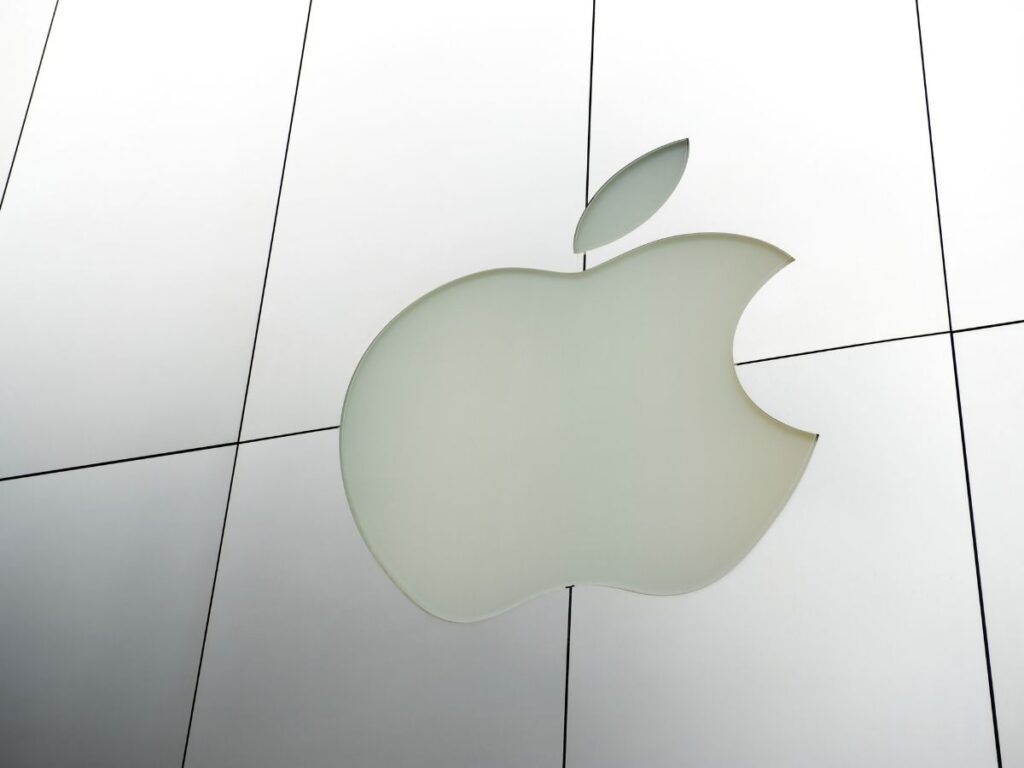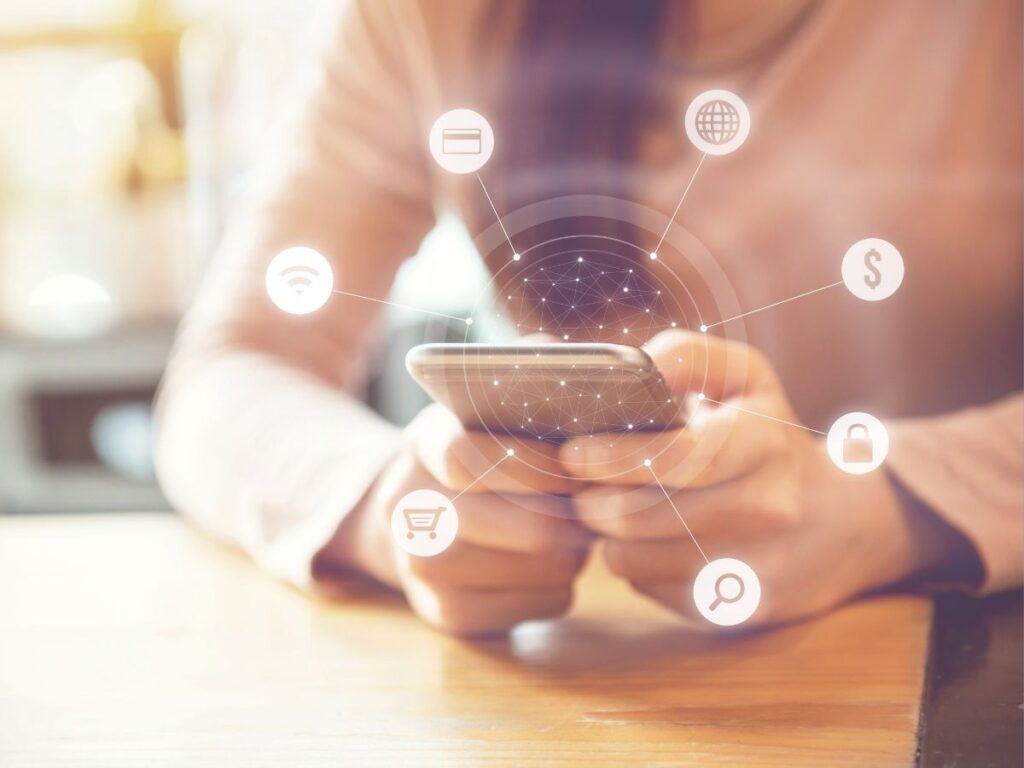Marketing is a tricky business. It can be easy to get lost in the details, and sometimes terms seem interchangeable until you start looking at them more closely and realize that in actuality, they are completely different.
A perfect example of this is the subtle differences between integrated, omnichannel and multichannel marketing. These three words have had a reputation for making even the latest and greatest marketing experts scratch their heads… and for good reason.
Now you, much like many other marketing professionals, may be wracking your brain wondering how these terms could possibly be their own distinct thing, but that is why we’re here to break it all down for you.
In this article, we are going to discuss what multichannel marketing is, how to use it, how it’s different from omnichannel and integrated marketing and finally, how the most successful brands have capitalized on its influence— and so can you.
 What is Multichannel Marketing?
What is Multichannel Marketing?
Let’s start off by going over the star of our show today: Multichannel marketing.
Multichannel marketing is a strategy that uses many distribution and promotional channels to attract customers. These include, but are not limited to:
- Email campaigns.
- Mail-order selling.
- Display Adverts.
- Websites
- Social media.
- Retail Storefronts.
With this approach, marketers are able to effectively showcase the value of their business’ products and services by utilizing the strengths of each particular marketing channel.
For instance, your business can benefit from selling its products at a brick-and-mortar store while also managing its e-commerce website. The brick-and-mortar provides local customers with tactical value and your e-commerce can reach a wide audience.
Why Do We Use Multichannel Marketing?
As we mentioned earlier, multichannel marketing allows you to promote your brand, products and services on a variety of marketing platforms rather than just on one channel alone.
With this, you are able to have a diversified strategy that enables you to connect with a broader target audience that attracts more leads and further enhances brand awareness.
When you are able to do this successfully, you won’t have to worry as much about staying relevant in your industry and you’ll be able to keep up with, or more ideally, outshine the competition.
If that sounds appealing to you, we at Business Marketing Engine can help get you there.
Contact us today to get all the guidance, resources and tools you need to hit all of your goals and more from our experienced marketing professionals.
Multichannel Marketing vs. Omnichannel vs. Integrated Marketing
Now that we’ve got a better idea of what “Multichannel” means and what the benefits of multichannel marketing are, let’s finally dive into your biggest question:
How in the world is it any different from Omnichannel and Integrated Marketing?
First, we’ll begin by providing you with some clear, concise definitions and then expand from there.
- Multichannel Marketing
A marketing strategy that uses a variety of distribution and promotional channels such as email campaigns, mail-order selling, display adverts, websites, social media and retail storefronts to attract and interact with customers.
This assists marketers in effectively showcasing the value of their business’ products and services by utilizing the strengths of each particular marketing channel.
- Integrated Marketing
A marketing method that focuses on creating a multi-faceted brand experience for their prospects and customers that is both efficient and consistent.
This ensures that a business’ brand is showcased in a style that is consistent and authentic to their overall message across all relevant channels.
- Omnichannel marketing
A marketing strategy that offers a streamlined customer experience no matter what channel it operates through.
Next, let’s sift through each term and get to a clear idea of their key functions, how they differentiate from each other and compare the advantages and disadvantages of each.
Integrated vs. Multichannel Marketing
Integrated marketing is a single plan with the same message delivered across multiple channels. Multichannel marketing, however, is the ability to communicate to customers through multiple platforms.
To put it simply, integrated marketing is all about delivering a consistent brand message and multichannel marketing is all about delivering that message through diversified channels.
Essentially, they work together to bring about a desired outcome, whether it’s an increase in lead generation, conversion rates, return on investment (ROI) etc. Therefore, you can’t really decide which has more of an advantage than the other as they need each other to deliver the best results.
Omnichannel vs. Multichannel Marketing
Multichannel marketing extends through many different channels that perform separately from each other using their own individual marketing funnels.
Omnichannel marketing, alternatively, focuses solely on providing the most consistently customized experience for customers across all channels.
At its very core, this strategy is all about optimizing the customer experience, regardless of the platform whereas multichannel marketing is all about optimizing your marketing strategy through each individual platform.
The advantage of using the omnichannel marketing strategy is that you will be able to increase customer engagement because users will have a seamless experience that is consistent with your brand.
Although you can accomplish this within just one marketing channel, it’s strongly recommended that you use a multichannel approach to increase brand awareness and engagement.
Omnichannel vs. Integrated Marketing
Omnichannel marketing is a strategy that is applied, while integrated marketing, on the other hand, is a style and medium of communication.
As we stated earlier, omnichannel marketing focuses solely on the customer experience. Without a proper integration method, communications throughout all channels won’t be adequately synchronized— leaving you with a flawed Omnichannel marketing strategy.
Just like how multichannel and integrated marketing go hand in hand, so do omnichannel and integrated. Therefore, you can’t possibly choose one over the other.
What is A Multichannel CRM?
CRM is a software system that helps businesses manage their customer relationships. It also assists with organization, efficiency and time management so you can spend more of your time doing what matters most— running your business!
Therefore, a multichannel CRM is simply utilizing CRM software to market your business across multiple channels and effectively engage with your target audience.
Implementing CRM into your multichannel marketing strategy will help provide you with a complete and comprehensive outlook on the needs and values of your customers. This will promote higher lead generation, conversions and brand awareness which will ultimately boost your net profits.
Additional benefits of utilizing a multichannel CRM include:
- Obtain a holistic customer profile
CRM provides you with a more detailed analysis of your customers regarding their profile and their interactions with your company all in one database.
- Improves communication with customers
Customers can contact your reps easily in multiple different ways using CRM software. This will ensure they have a positive customer experience that will lead them to buy your product and keep coming back.
- Provides instant engagement
CRMs have the ability to respond to your customers instantaneously through tools like chatbots and automated messaging. This leaves customers feeling satisfied and supported which will generate more loyal customers.
- Consistency across all channels
When you integrate CRM with your multichannel support, you can ensure that the right department is resolving the appropriate ticket. This will boost efficiency and generate a better customer experience.
Examples of Successful Multichannel Brands/Campaigns
To find the best examples of multichannel marketing, it is best to model after those who have already mastered this art form and continue to prosper to this day.
If you are looking for some inspiration so you can also confidently and effectively wield the power of the multichannel approach, take a look at these successful industry leaders who have done an excellent job at using every channel available.
Rebecca Minkoff
Rebecca Minkoff is a women’s clothing designer that’s known for creating one of the most impressive and effective multichannel marketing campaigns to this day.
Minkoff began to notice that her customers would use their phones to look up her clothing on her website while shopping at her brick-and-mortar store. She found they were doing this to get more details about the clothes, checked sizes they couldn’t find in the store and read reviews before purchasing.
That’s when Minkoff had a fantastic idea— to have both the online and brick-and-mortar shopping experience collide.
So then, her brand incorporated interactive screens as a digital tool to help shoppers move through the customer journey, make decisions and ultimately, have an elevated customer experience all while engaging with her brand.
Now Minkoff’s customers are able to access photos of her clothing on her website, get all the information they need on available sizes and materials, read reviews and more. Additionally, she developed a feature to send her customers information via cell phone so they can complete a transaction through their mobile devices. This way, when the store didn’t have the shopper’s correct size, they could purchase instantaneously online and still make the sale.
Once Minkoff launched this ingenious multichannel retail idea, many other companies followed suit which resulted in six to seven times more sales within the next six months.
Things to take away from Rebecca Minkoff:
- Align your marketing with your customer’s buying behaviors.
- Think outside of the box when it comes to enhancing the customer journey.
- Find a way to efficiently and effectively merge your customers’ in-store and online shopping experience.
- Create a space where consumers can enjoy engaging with your band and can quickly be influenced to purchase whether online or offline.
Uniqlo
Uniqlo is a Japanese retail brand that has a renowned global presence, especially in Asia. They are a great model of how you can capitalize on an excellent multichannel marketing strategy.
Uniqlo has become a great new competitor in Indian and Chinese markets. They have done this by implementing a virtual dressing room, Uniqlo Magic Mirror 2012, to their brick-and-mortar locations, being one of the first fashion brands to do so.
This acted as a great way for the brand to engage with customers via social media as shoppers were able to try on outfits virtually from viewing and operating a touch screen in the store.
Additionally, customers could take a picture using different Uniqlo backgrounds, send it to the company or friends via WeChat and follow Uniqlo as an incentive to get oncoming promotions or coupons.
Overall, Uniqlo’s 2014 campaign, “Style Your Life” has accumulated more than 600 thousand followers in only six months.
Key takeaways from Uniqlo:
- To engage a wider audience, find new and creative ways to market your brand.
- Find new and easier ways for customers to make buying decisions and go through the customer journey.
- Open up visual ways in which customers can interact with your brand and share it through multiple channels.
 Apple Inc.
Apple Inc.
When Apple realized that most of its sales come through e-commerce, it took a unique approach in stores. Rather than focusing on volumes or deals and discounts like other companies do for their products (think Walmart), the retail locations focused more heavily on customer experience.
By doing this, Apple customers were able to immerse themselves with the brand by making them feel less pressured about purchasing anything at all. This created more frequent trips to their stores which ultimately lead to more purchases.
All of us know the Apple brand distinctly, that’s because they do a fantastic job with keeping their brand image consistent throughout all marketing channels. Their stores are usually located in high traffic areas and all have the same architectural design that stands out amongst any environment.
To ensure their customers are continuously engaged, Apple has developed Apple News+ and Apple TV+ hardware to rack up even more revenue opportunities.
What to take away from Apple:
- Find multiple ways for your brand to connect with customers.
- Develop other links between you and your customers by adding additional services.
- Implement a way for customers to immerse themselves in your brand experience.
- Market your brand in a way that is consistent across all channels and can stand out from the competition.
Under Armour
Under Armour has been able to create a strong, personalized connection with its customers through the use of celebrity endorsements. This includes The Rock and Tom Brady among other well-known faces in today’s culture.
The athletic wear company has also created a feature on their UA Shop app where customers can get customized recommendations on products to make the user experience more personalized and convenient.
To expedite its brand presence, Under Armour bought the MyFitnessPal app in 2015. With marketing on multiple channels like this, they have become the top fitness tracking company and proven themselves a valuable asset in their target audience’s daily lives.
Takeaways from Under Armour:
- Personalizing your customer experience will retain customers.
- Find new channels that align with your target audience and their lifestyle.
- Discover and implement ways in which you can connect with your customers on a daily basis (i.e. phone applications).
- Welcome opportunities that could add value to your brand and fulfill your customers’ needs.
Burberry
The British luxury fashion house, Burberry has captivated the hearts and minds (and wallets) of consumers for generations. From their iconic coats to leather goods like handbags or shoes; they’re one of the leading global brands in the retail market today.
In fact, Burberry has become an increasingly popular brand within many Asian markets such as China and Japan. This is because the company has leveraged social media channels like Facebook and Instagram as well as more regionally popular apps like WeChat and Line to live-stream and interact with consumers in real-time.
Not only that, Burberry has utilized mega channels like Alibaba’s Tmall in China— the largest leading business-to-consumer (B2C) channel in Asia as well as implemented a Buy-Online-Pickup-In-Store system that enhances the customer experience by cutting down the delivery time.
Your essential takeaways from Burberry:
- Expand your brand to other markets by utilizing the channels that are most popular in those regions.
- Find new mediums to interact with your customers visually and in real-time.
- Implement new ways to optimize the customer experience that promotes more loyal customers.
What is a Multichannel User Experience?
A multichannel user experience is when companies use multiple channels such as social media or email to engage with customers.
When creating a multichannel user experience, you must make sure that every element is streamlined to ensure that your customers can flow through the customer journey quickly and efficiently whether it’s on their mobile phones or laptops.
The experience that you provide your customers across all channels is important for maintaining their loyalty and satisfaction. The more devices they use, the harder it becomes to maintain an exceptional customer journey on every single platform. This is because consumers expect to have the same experience regardless of the device they are using.
It is also more common for consumers to interchange the channels they use throughout the customer journey— i.e. they may research a product on a desktop, then use their mobile phone to skim through reviews or prices, and then finally make a purchase back on their desktops. This even further emphasizes why a consistent brand experience is key to customer satisfaction and loyalty.
Some strategies you can employ in order to not only meet but exceed the expectations of your users are:
- Use automation tools for efficiency and convenience.
- Make your marketing customer-centric.
- Make your multichannel experience accessible across all channels.
- Provide multiple options to when and how they access your products or services.
- Avoid promoting through only one specific channel.
- Align the context of your channel to the appropriate customer buying behaviors.
- Utilize customer data to personalize your interactions and create a streamlined user experience.
Ultimately, as long as you are able to continually come up with new and creative approaches in how to best optimize your multichannel user experience, your company will have established a solid baseline for success.
It’s Time to Channel-In to Greatness
As business owners and entrepreneurs, we all want to see our business grow and thrive. We all want to build a brand that resonates with our target audience and establishes a level of revenue consistency and momentum that is unstoppable.
With multichannel marketing, you will be able to boost brand awareness, increase customer engagement, generate more leads, conversions and customer retention all in one.
It is a seamless strategy that simply involves marketing your brand, its products and its services across multiple channels with complete consistency and efficiency.
When you are able to utilize all the resources and tools available to you, and better yet, find creative ways to pave an entirely new path to achieve your goals, you’ll be perfectly set up to become the most acclaimed, trailblazing brand in your market.
However, we know this is a lot to take and run with all on your own.
At Business Marketing Engine, we understand that trying to focus on growing your business can seem impossible when the demands of day-to-day business responsibilities take hold.
This challenge can be even greater when you are a solo operation or have a smaller team.
But that’s where we come in.
Our talented team of marketing masters have gotten businesses just like yours off the ground and soaring to their fullest potential.
Contact us today for a free consultation. We offer customizable solutions that are catered to your specific marketing needs.

 Apple Inc.
Apple Inc.


